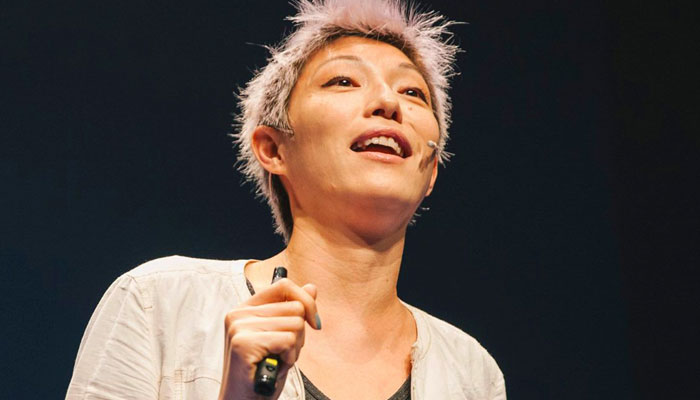Meet Ceclia Tham: Award-winning futurist and ECE speaker

Award-winning Futurist Cecilia Tham believes that today’s emerging technologies will have a profound impact on tomorrow’s career trajectories.
“These things are going to impact not only our personal lives, but professional lives,” she said. With thoughtful planning and preparation, “people can use this as a springboard to further themselves.”
The founder and CEO of Futurity Systems, Tham is an Emory alumni, Harvard-trained designer and serial entrepreneur. She served as advisor to the UN World Food Program and is the winner of AWS Global Disruptor Award 2022, as well as the WEDO Women Pioneer Award 2022. She’s been selected as Forbes Top 40 Futurists 2022, 100 Most Influential Women Europe, and 100 Women of the Future.
Tham will be the next speaker in the ECE Speaker Series, a free event on April 15, 2023, where her topic will be “Transforming Your Future: Harnessing the Power of AI and Frontier Technologies for Personal and Professional Growth.” We caught up with her to get a preview of what she’ll be discussing.
Can you tell us about the emerging technologies you’re thinking about these days, and why people should be interested?
There are frontier technologies, exponential technologies that are going to be very impactful. We’re talking about quantum computing, blockchain, and artificial intelligence. We can think of these tools as ingredients. How are we going to cook with them?
We all need to rehearse possible futures scenarios, to think about how we can leverage these opportunities. The more people can have this ability to rehearse multiple futures, the more prepared they will be.
You encourage people to combine ideas about entrepreneurship, technology, science, and design. How do all those come together?
These are all things being taught, but they're all being taught as a separate vertical. But there will be an intersecting part: the skill sets of the future, the jobs of the future, will require an ability to bridge these seemingly different areas and combine them in new ways.
That’s because our technologies are shifting at a much faster rate than we have ever seen before. There are a lot of unknowns that are coming at us at a speed that we have never ever dealt with before. By bridging these different areas, we get a fresh perspective on these oncoming changes.
Can you give a practical example?
I started a school focused on building a pipeline for women in tech leadership — super specific. There, we are trying to we teach Machine Learning or Artificial Intelligence. We apply it as a layer. By that I mean, we have students coming in with degrees in biology or law or whatever, and we teach them to think about how they can apply AI to law, to biology, etc.
That’s not to say that they have to go on and become programmers. But we train them so that they can at least speak the language, they can manage the team that will be using these tools.
Why and how can adult learners apply that approach themselves?
No one stays in the same job for their whole entire lifetime anymore. At best, they're staying for two or three, or maybe five years. For most people, that means they probably need to have a more horizontal approach, a general sweep of basic knowledge.
They may need to know a little coding, maybe understand a little bit of business, a little bit of design — a little bit of everything. Then the key part is the bridging, understanding how these things connect as you build your career pathway.
What role does continuing education play in all that?
It's absolutely crucial. Continuing education takes us past that older way of thinking, where we go to school and get out of school, being done with education. That is not going to be true with this shifting landscape.
Really, continuing education is the only way for someone to adapt. You need to be able to ingest new knowledge, methodologies and frameworks, and then you need to be able to apply them along the way. Continuing education offers an agile way of thinking about your career.
Remember the ingredients I was talking about earlier? With continuing education, you can cook up more recipes. That means you're going to be more resilient in the face of whatever comes next.
Emory Continuing Education is a division of Emory Academic Innovation.